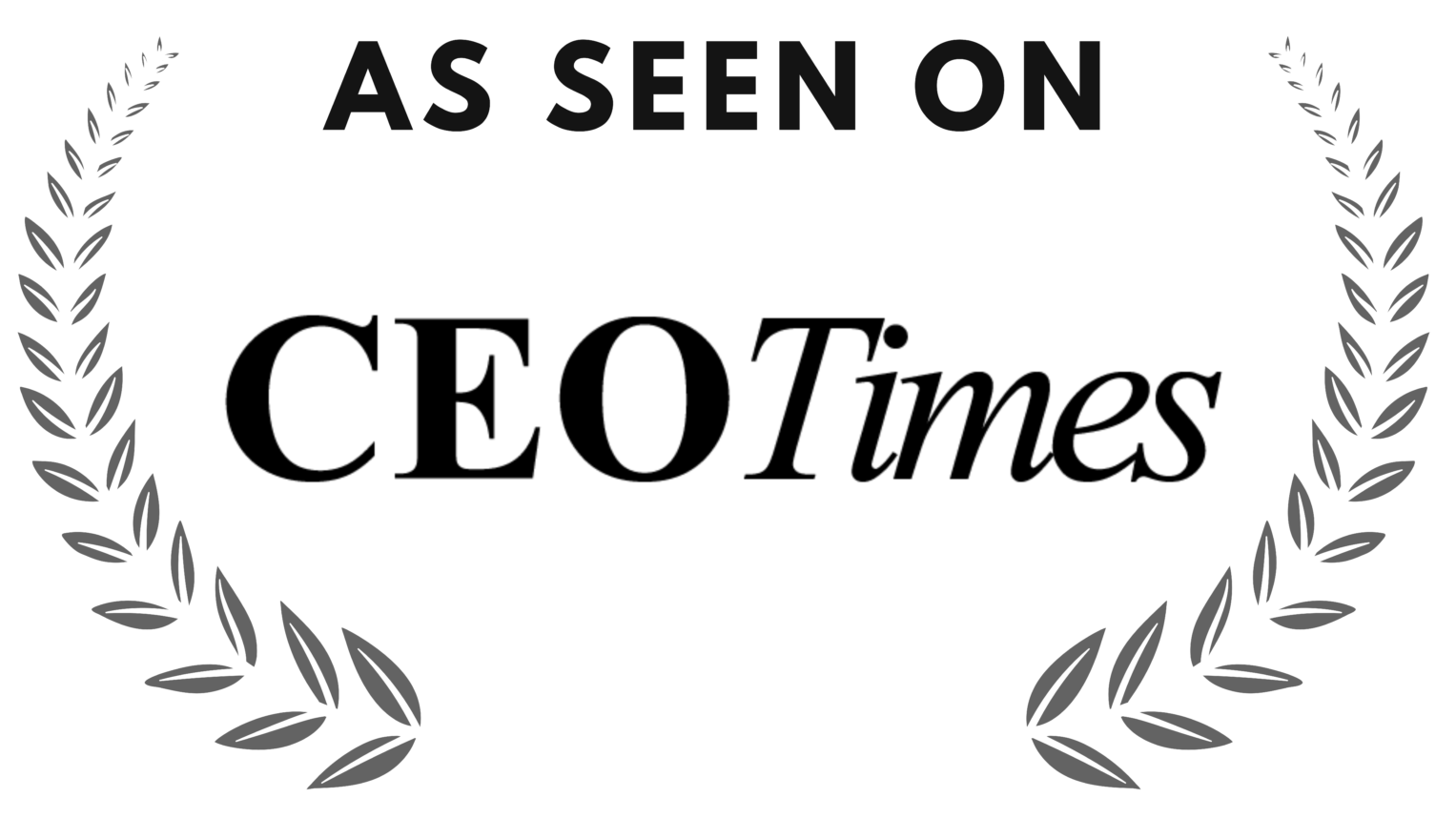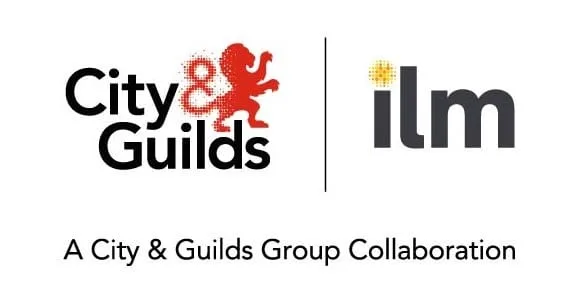Darren reveals how training with The British School of Excellence enhanced his presence, communication skills, and confidence, opening doors to new career opportunities — and why it’s one of the best professional decisions he’s made. It gave me a 16,500% return on my investment.
Ignite What’s
Already Inside You.
Confidence. Clarity. Connection. Our accredited human optimisation training helps unlock your inner brilliance in work, life, and relationships.
- 5000+ Graduates
- 60+ Countries
- ILM & CPD Accredited
- 5-Star Reviewed

4.9 out of 5 stars from 47 reviews
★★★★★ Rated 4.7 out of 5

- E-Learning
Courses

Train the Trainer Signature Programme In-Person in California, USA
Join us from for an exclusive spa retreat and our internationally triple-accredited Train the Trainer programme by The British School of Excellence.
Attend live at a five-star coastal resort in Southern California, or join online via our immersive hybrid option.

Train The Trainer Live, In-Person
Unveil the Ultimate Spa Retreat & Professional Development Fusion
Refine Your Presence. Elevate Your Skills. Recharge Your Soul.
Presented by The British School of Excellence

E-Learning Course for Children
When children learn good manners from a young age, these quickly become second nature.

In-person or Online: High Performance Coaching with Dr Philip Sykes
Philip Sykes will work with you to guide you towards achieving exceptional performance through transformative discussions and structured habit development.

E-Learning: Branding Essence
Welcome to a transformative journey designed to empower you in crafting and articulating your personal brand. This course is not just about building a brand; it’s about discovering and showcasing the essence of who you are professionally.

E-Learning Emma Dupont
Introduction to the emma dupont school of etiquette’s online etiquette course.

E-Learning: Interview Skills
Always remember that an interview is a two-way street – it is not only a chance for you to put your best self across to the interviewer and show them why you are the best person for the job, but it is also an opportunity for you to learn more.

E-Learning: International Business Etiquette (China)
This course is designed to help you understand and navigate the complexities of international business and social settings with China specifically. You will learn the fundamentals of Chinese etiquette.

E-Learning: International Business Etiquette
Culture, defined as societal norms within a community, shapes human behavior and communication. Understanding cultural differences is crucial in global business to avoid misunderstandings.

E-Learning: The Polished Professional TM
Meeting and greeting are indeed crucial aspects of etiquette, and they can significantly influence how others perceive you.

E-Learning: Introduction to Personal Branding
Understanding your Personal Brand. An introduct course with some key tools to get you thinking and started. Please consider this course material has been recorded pre-coronavirus times and etiquette surrounding personal interactions may have changed.
Starting from: £1995

Private Coaching with Dr Philip Sykes
Private Coaching with Dr Philip Sykes.
- Live, in-person with Philip Sykes or a private session via secure live video conference
- Online group class
- Arranged at your convenience

High Performance Coaching
Certified High-Performance Coaching™ with Philip Sykes, Founder & CEO of The British School of Excellence.
Starting from: $4995
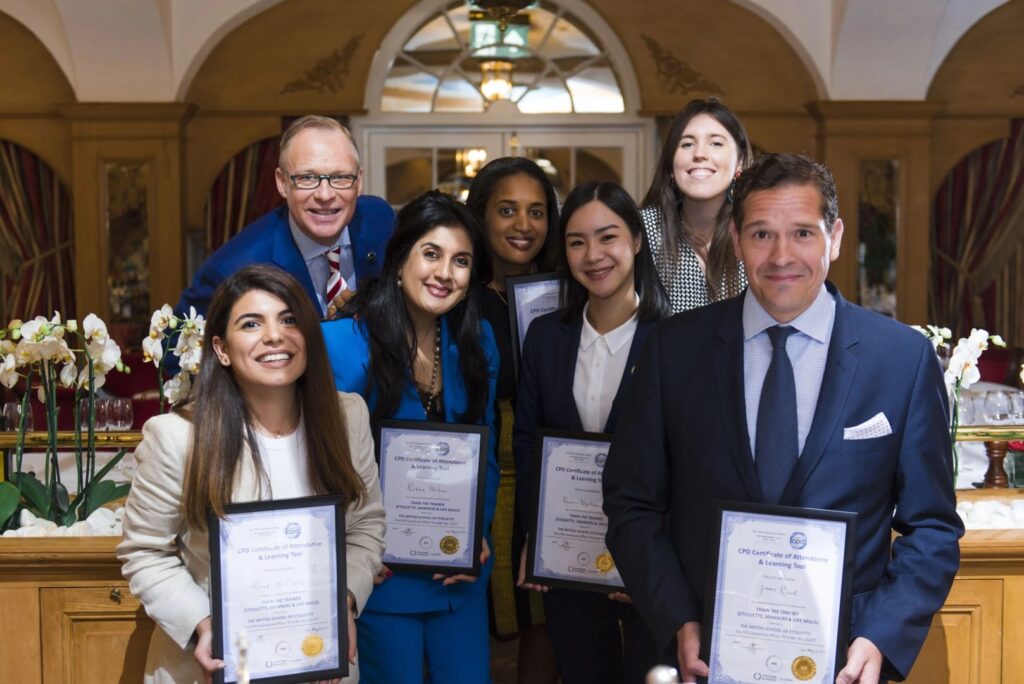
Train the Trainer Signature Programme In-persin in Florida, USA
Refine Your Presence. Elevate Your Skills. Recharge Your Soul. Join us in Jacksonville, Florida, USA.
- Jacksonville, Florida, USA
- In-person group course
- 15 - 21 November 2025
Starting from: £395

Fine Dining Etiquette: Master Confidence at Every Table
Perfect your dining skills & impress with elegance.
- Mayfair, London
- In-person, or Online group class
- In-person: August 13, 2025 Online: August 28, 2025
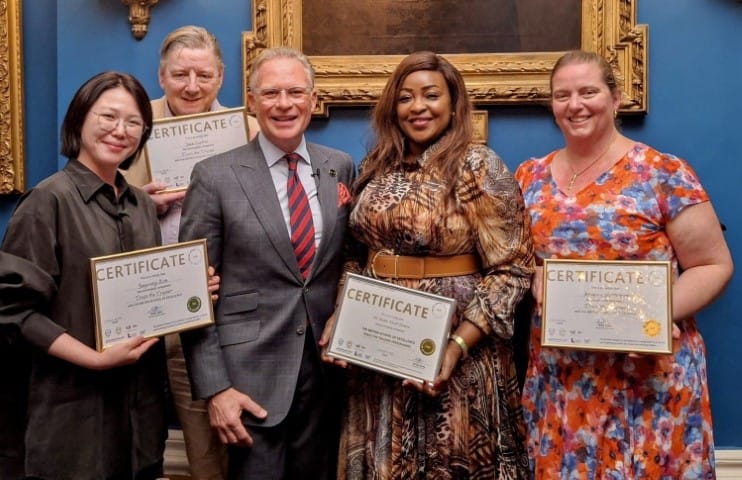
Train the Trainer Signature Programme In-person in London
Are you ready to take the next leap in your career and make a real difference to people’s lives? If you want to have a positive impact on the people around you and be able to work anywhere in the world, look no further.
- Group Class
- 15 -19 September 2025
The investment that transformed my career
Darren Carter
★★★★★ Rated 4.7 out of 5
Felisha Kay
★★★★★ Rated 4.5 out of 5
The course helped me refine my communication skills, making me more persuasive and impactful in meetings. It’s a game-changer for anyone in a managerial role!
Iulia Arhire
★★★★★ Rated 4.2 out of 5
I never realised how much I was holding myself back until I took this course. The training helped me unlock my full potential — both professionally and personally.
*Let’s map out your growth. One call, real change.
Who Do You Want to Become?
Command respect. Be More Relevant. Unlock new opportunities.
Advance your career with the confidence, communication, and executive presence that gets you noticed — and promoted.
Turn your passion into a profitable business
Get certified to teach human performance, etiquette, and presence — and build a rewarding practice helping others transform.
Live and connect with confidence.
Elevate how you show up in your personal life — from social settings to family dynamics to everyday relationships.
- trusted
Global Reach. Personal Transformation. Trusted Worldwide
Students Trained
0
+
Testimonials
0
+
Countries
0
+
Years of Impact
0
- Accreditation
Explore Our Most Transformational Programmes

Train the Trainer Signature Programme
Are you ready to take the next leap in your career and make a real difference to people’s lives? If you want to have a positive impact on the people around you and be able to work anywhere in the world, look no further.

Train the Trainer Master Certification Programme
Lead at the highest level. Build a respected, scalable etiquette coaching practice. Earn international credentials and join an exclusive network of peers.

Train the Trainer Children’s Etiquette Programme
Become an internationally certified Children’s Etiquette Coach in just three days. Learn how to teach social skills, confidence, and modern manners to children aged 6–12.

Train the Trainer Youth Etiquette Programme
Equip the next generation with confidence, respect, and life skills. In just three days, become a certified Youth Etiquette Coach with The British School of Excellence – the only internationally accredited organisation of its kind.
- Testimonial
Real People. Real Growth.
Hear what our incredible customers have to say!
I really enjoyed the course. It was comprehensive, engaging, and gave me useful insights that I can apply in my daily life. The online format was convenient, and I felt supported throughout.
Chantal B
Core Life Skills (e-learning)
Thank you so much, this course answered all of my questions and more! The practical tips and mock interview sessions really helped me gain confidence for my job search. Highly recommended!
Shanna A
Interview Skills
The course offered the right amount of information to learn about and practice Etiquette. It showed the real reason for Etiquette and how advantageous these principles are when put into practice. Thank you.
Josephine T
Core Life Skills (e-learning)
This was absolutely helpful! I have learnt in a short time all I have not known about dining manners in my entire life. I highly recommend.
Imoh E
Dining Etiquette (e-learning)
I feel very equipped and grateful for being a part of such an endearing, professional course.
Ranjeeta S
Core Life Skills (e-learning)
As a senior leader within a luxury hotel group, I have seen many training programmes over the years, but none have delivered the level of transformation that The British School of Excellence achieved for us.
Customer service has always been at the heart of our business, yet we recognised that consistency, confidence, and emotional intelligence needed to be elevated across all our properties. Dr Philip Sykes...
and his team delivered training that was both practical and inspiring, empowering our people to deliver service that truly reflects the standards of a world-class luxury brand.
The impact has been remarkable. Guest satisfaction scores have risen, staff morale has improved, and our reputation for excellence has strengthened globally. What set this training apart was the ability to connect etiquette and emotional intelligence with measurable business outcomes.
It has taken our business to a new level of success, and I would recommend it without hesitation to any luxury hospitality group committed to excellence.
Read More
Alexandra M
Vice President, Luxury Hotel Group
Our organisation operates across multiple regions, and we knew that cultural intelligence was key to building stronger client relationships and improving collaboration between our international teams. The British School of Excellence provided exactly what we needed—training that was practical, insightful, and aligned with our brand values.
The results have been outstanding. We’ve seen a noticeable...
rise in professionalism and consistency across our teams, stronger leadership at every level, and improved client loyalty. Staff turnover has decreased, morale has gone up, and our reputation for excellence is now recognised both internally and externally.
What impressed me most was the tailored approach. This wasn’t generic training—it was designed specifically for us, and it delivered measurable results. For any premium or luxury brand with a global presence, I cannot recommend The British School of Excellence highly enough.
Read More
Michael T
Global Managing Director, International Luxury Group
As the CEO of a global luxury brand, I have very high expectations when it comes to training and development. We cannot afford inconsistencies in service or representation—our people are our brand.
Working with Dr Philip Sykes and The British School of Excellence has been one of the most valuable strategic investments we have made. The programme was direct, impactful, and completely aligned...
with our standards of excellence. My senior leaders left with sharper communication skills, greater confidence in the boardroom, and a clear understanding of how to carry our brand values into every interaction.
What impressed me most was the immediate, measurable difference. Our teams are more engaged, our service delivery is more consistent, and the feedback from our clients has been outstanding. This isn’t theoretical training—it delivers results.
For any organisation operating at the top end of the market, I would consider this work essential.
Read More
Jonathan R
CEO
Working with Dr Philip Sykes has been nothing short of life-changing. His private coaching challenged me to raise my standards, refine my presence, and approach every interaction with confidence and clarity.
Philip’s ability to blend traditional etiquette with modern leadership skills is extraordinary. Within days, I noticed a marked difference in how people responded to me—whether in the boardroom,...
at social events, or even in everyday conversations.
What sets him apart is his genuine care and personal attention. He doesn’t just teach etiquette; he transforms the way you see yourself and the impact you make on others.
I now carry myself with a new level of assurance, and the skills I gained have opened doors I never imagined. This investment in myself has been one of the most rewarding decisions I’ve made.
Read More
John V
I attended the Fine Dining Etiquette course in Mayfair and it was truly life-changing. Before the course I often felt nervous in formal dining settings, unsure of which glass or piece of cutlery to use. Philip Sykes created such a welcoming and elegant atmosphere that I quickly felt at ease.
The session was engaging, practical, and full of useful tips that I could apply immediately. I now feel confident navigating any table,...
from business lunches to special occasions. Learning how to manage awkward situations gracefully and practising conversation skills at the table made a huge difference.
The highlight was enjoying a beautiful three-course meal while putting everything into practice. I left not only with new skills but also with a sense of assurance that I can carry with me into both my professional and personal life.
I would highly recommend this course to anyone who wants to build confidence and present themselves with elegance in any dining situation.
Read More
Susan A
Before this workshop, I always felt nervous meeting new people and speaking up in class. I thought confidence was something you were either born with or not. Spending a day with Dr Philip Sykes completely changed that for me.
I learnt how much of a difference body language and first impressions really make. Practising introductions, posture, and even how to enter a room gave me confidence I didn’t know I had. The communication activities were also amazing—I now know how to keep a conversation going and actually enjoy it instead of worrying what to say next....
The part on mindset was the most powerful. I realised I’d been stuck in a fixed mindset, scared of making mistakes. Now I feel more motivated to try, to learn, and not give up when something feels difficult.
Since the workshop, I’ve spoken more confidently in class, started preparing better for exams, and even felt calmer in my sports team interviews. I walked away feeling like I had the tools to succeed not just at school, but in life.
Read More
Sofia, 16
I didn’t know what to expect from the Mindset & Confidence workshop, but it turned out to be one of the best things I’ve done. I used to get nervous speaking in front of people and never felt sure how to make a good first impression.
Dr Sykes made everything clear and easy to practise. I learnt how to shake hands properly, introduce myself with confidence, and even how to walk into a room without feeling awkward....
The interview practice and communication tips were really useful—I feel much more prepared for university interviews and even part-time job applications.
What surprised me most was how much I learnt about mindset. I realised I was holding myself back by doubting myself too much. Now I try to focus on what I can do, instead of worrying about what might go wrong.
I left the workshop feeling more confident in myself, and it’s already helping me at school and in sports. I’d recommend it to any teenager who wants to feel more confident about the future.
Read More
James, 17
My name is Imoh Ekukinam, A Nigerian with a background in aviation. I am a former beauty queen and an entrepreneur. Growing up, etiquette and good manners was not something that was taught in schools, especially in this part of the world. Some of us were just lucky enough to have parents who instilled certain values in us. Even though at the time, I did not realize that what they were teaching was called “etiquette.”...
As I have grown older and stepped into different rooms; whether in business, professional spaces, or social circles. I have come to understand just how important it is to carry yourself properly. Good manners and grace have opened doors for me, helped me connect with people and left lasting impressions.
Throughout my journey, I have noticed that one of the fundamental challenges many people face, especially in this part of the world, is a lack of good manners and etiquette. I strongly believe that if we start grooming and educating young minds early, we can raise a generation of confident, well-mannered individuals. The poorly behaved adults we see today were once teenagers and I can’t help but wonder; if someone had mentored them, coached them, or guided them in the right direction, wouldn’t the world be a better place?
Other than traveling the world and being an entrepreneur, I genuinely enjoy helping others figure out how to carry themselves better, how to behave with thoughtfulness and grace. This passion led to enroll with The British School of Excellence.
The Train the Trainer program was just the right course to take. From sharing with us etiquette tips for professional, social and personal development to mastering presence, communication, fine dining skills, listening effectively, dressing well and even handling interviews with confidence. We did not just learn these things for personal growth. We were equipped to teach others. We were given hands-on tools to guide people on their own journey.
It was such an engaging, practical, and enjoyable experience. Mr. Philip Sykes, our tutor, was incredibly warm and taught us in such a simple, relatable way. We also had amazing mentors like Transform with Mansi, Dr. Jacqueline and Leanne, who added so much value. After this course, I have finally been able to craft my elevator pitch; something I struggled with before.
This experience has made me better. People around me are noticing the change already. I hope to use what I have learned to not just impact through training others but also create impactful products—like my upcoming etiquette card series where people can learn one practical tip a week and become polished by the end of the year.
More than anything, I want to reach young girls. I believe that if we give the younger generation the right foundation, we will have a better society, one that is respectful, kind and well-behaved.
If you are thinking of joining this program, do not hesitate. Whether you want to build a business or just improve yourself personally, this course will change you. It is simple, practical, and deeply enriching. It is truly one of the best investments I have made in myself in recent times.
Thank you to The British School of Excellence for helping me become the woman I have always wanted to be! Refined, intentional and ready to help others grow.
Read More
Imoh Ekukinam
Entrepreneur
My experience with the British School of Excellence's Train the Trainer programme has been exceptional. Designed for aspiring certified etiquette consultants, the course provided me with the knowledge and skills needed to confidently teach etiquette in both social and business environments. ...
Through lessons on etiquette, emotional intelligence, and presentation skills, I gained invaluable tools that have significantly boosted my confidence in both personal and professional settings. This programme not only deepened my understanding of etiquette but also helped me unlock my full potential. I now feel fully prepared to handle any situation with grace and professionalism, and to pass this knowledge on to others.
I appreciated the flexibility of the online format, which allowed me to participate from another country. Although there were some challenges in connecting the live and online sessions in a hybrid format, the school generously offered me the opportunity to retake the programme in a fully online format via Zoom. This level of support truly exceeded my expectations.
The alumni group is a fantastic resource, helping me stay connected and learn from the experiences of past participants.
Overall, this programme has been a crucial step in my journey to becoming an etiquette consultant, and I highly recommend it to anyone looking to pursue this path.
Read More
Shakhlo Abduganieva
It is a real honour to be a participant in this course. I found myself so lucky to take the course provided by BSE, with Philip, Leanne, and other marvellous guest lecturers, and also other fabulous classmates. The content and opportunity are far better than my expectations, such as the DISC analysis, USA Global TV, and so on, are extraordinary!
Simon Y
The Train the Trainer programme was a life-changing experience for me. I am confident BSE delivers the most cohesive and comprehensive training to help you position yourself as a professional in the field of Etiquette, Manners and EQ education.
Klaudia K
Great Course that covers all the aspects of Etiquette & manners, amazing community and support.
Heba S
Taking this course was a great experience that allowed me to learn the importance of good manners in all circumstances. I would have liked to learn more about cultural differences in the work environment, how to behave (such as in awkward situations), but I understand the time available is limited.
Eleonora C
It was a great experience for me to be a part of this amazing course and deal with the professional coaches. The duration and the timing of the course is very good. The materials are clear and to the point, the course runs lively, full of information and useful discussions. The follow-up emails and tests represent the care and concern for the trainer. Thank You
Majdah A
Business School of Etiquette is one of the best investments I made when it comes to additional education and self-improvement. It is a life-changing experience indeed with positive outcomes on many levels. The lessons I got from Philip and a team of experts are very valuable and will shape my future work and career better, and what I am planning to do.
Nina S
Overall, I would like to take this opportunity to appreciate all your team members who worked on this course. It was such an amazing journey you have taken us through. I wish you all the best.
Margarita S
I would like to thank you again for an invaluable experience. It was the stepping stone I needed to make now my dream a reality.
Antoinette C
The Train the Train course has absolutely met my expectations and even exceeded them. After taking the course, I have more confidence, and I feel I’m connected with the world in a meaningful way. I hope I’ll be able to share my experience with the world in the future.
Armen S
Thank you for guiding me on my journey to becoming a trainer. It was a privilege learning with you, your wonderful team, and our group of the fabulous Milene and the lovable Zach. I cannot wait to announce everything to my friends about your school formally. It was so much fun.
Jessica G
was amazing, and so sad it had to end
Zachary K
This was a great added value to my overall life as a coach. I am proud of myself to have been able to invest in courses such as "Train the Trainer " by the British School of Excellence. I can't fail to mention the importance of joining the alumni group of other Trainers who BSE and further assistance and facilitation from the school trained. This is going to help my career grow exponentially.
Alice M
The course was terrific. I did not want it to come to an end. I just wanted to sit there and be taught more life skills. I'll certainly sign up for another training with BSE.
Louise K
It was amazing and wonderful. Proud to be part!
Bruna M
I enjoyed the Train the Trainer course. I am grateful for the opportunity to learn and grow in my personal and business life with this training. Philip was professional, informative and interesting in his teaching.
Luana P
Philip was an excellent trainer. We could see his passion throughout the days we had the course. Very happy to have finally chosen BSE.
Eleni M
Excellent and interesting course which kept us captivated.
Suzie R
The course was very interesting, very informative, and Philip is a great teacher! I am very happy to have chosen The British School of Etiquette. I have learned a lot, cleared up all my doubts and opened my mind for new skills and ways of teaching. Thank you for the time well spent.
Cintia K
It has been a beautiful week learning the very basics and some unknown facts about etiquette. I really appreciate Philip and his team for the meticulous effort to bring back the beauty of basics from kids to elders to international understanding of different cultures. It has been more than just a learning that I’d take back, an experience to cherish.
Shreya K
The course content was loaded and of good quality, and the delivery was excellent. The venue was also top-notch. I will recommend this course any day! Thank you, BSE
Lydia B
I can't express how pleased I am to have taken part in this course. It was an easy and the right decision. Thank you
Agni U
I can't rate the Train the Trainer course highly enough. Philip is an energetic coach who embodies etiquette. The guest coaches are all highly relevant. Every day was packed with actionable content for developing myself and my etiquette modules. I finished the week well prepared to start teaching etiquette courses and wishing the course would never end.
Charles M
What an incredible course; Philip is an outstanding and wonderfully inspiring teacher. His knowledge and support are unparalleled. It was such a wonderful week, mixing with so many inspiring people; it is such a shame it had to end!
Sophia L
I truly enjoyed all of it and I will definitely go back as soon as I can. Philip is an amazing teacher and what he shares is priceless. Investing in myself by taking the Train the Trainer certification with The British School of Etiquette is one of the best investments I have ever made.
Silvia G
Overall, a very positive experience with excellent content and superb support with a built-in presentation workshop. Superb venue and excellent views.
Simon L
Philip Sykes is fantastic! The course was exceptional and so was Philip and his team.
Beth C
Such a great and wonderful experience. Sir Philip was amazing. Learnt a lot from him.
Lubna B
The British School of Etiquette conducted a Train the Trainer Course in Pakistan on the 1st December 2018. It touched the core of my being and showed me what Etiquette and manners encompass. It motivated my soul to bring a positive change within me and to those around me. The Trainer held us captive in a beautiful space. Thank you.
Anne K
It was the most exhilarating experience of my life. I wish I had known all those golden nuggets that Mr. Philip Sykes shared with us a long time ago. I would have modulated my life in a much better way; I could have availed myself to change the trajectory of my future. But I believe it's never too late, and we learn each day. Thank you, Mr. Philip. My son quotes you every now and then. You are not just an integral part of my life, but rather our whole house. Wish you all the best.
Sadia R
The best investment I have made in my life.
Daria N
It’s a very knowledgeable and helpful course that puts you out of the crowd and gives you the power to start your business and the power of selling the etiquette classes you have to affect others
Tamer E
I am inspired, and my confidence and potential are brought out. This is an incredible experience and training. I love the course and all the coaches.
Guohui X
It is an intensive course, and we got so much information and knowledge. It takes time to digest all and makes us study more in the future. It will be perfect if we have one more day to study more details about the materials for Train the Trainer.
Daisy Z
- Who We Help
Upgrade Your Presence…Free Guide Inside
Polish Your Presence
The Ultimate Guide to Emotional Intelligence & Impact
The Confidence Blueprint
Download Your Free Guide Now
Elevate Your Communication
Command Any Room Free Guide Inside
Become Unstoppable
Free Guide to Unlock Your Full Potential
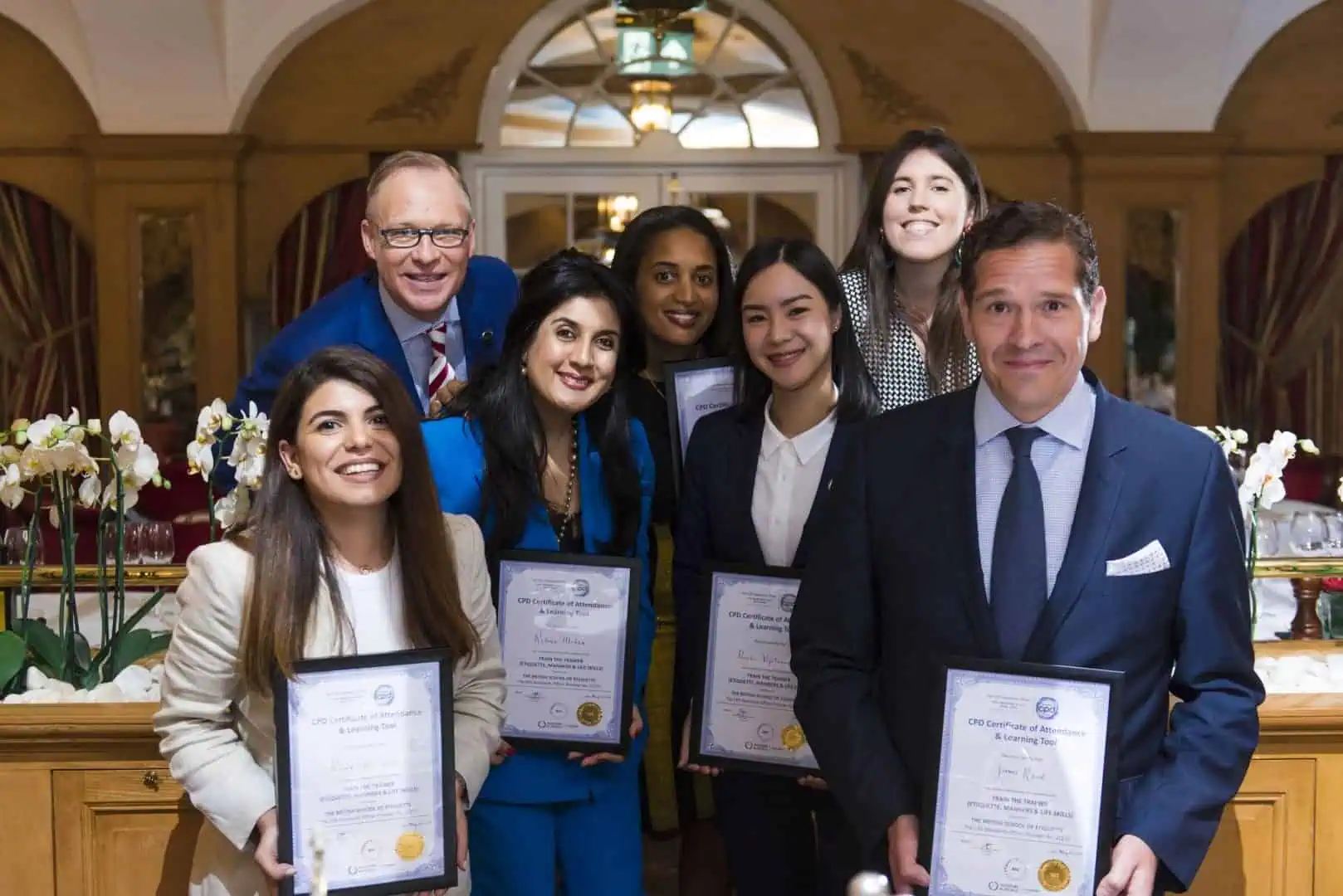
Download Our Free Guide 5 Keys to a Confident First Impression
Unlock the secrets to making a lasting impression with our free guide. Learn simple techniques to boost your confidence and leave a powerful first impression in any situation.
Book a Free Discovery Call
Have a glance at the calendar to the left and select a good time for you.
- Blog
Master the Art of Human Connection

What Great Christmas Hosts Actually Do Differently
I’ve learned that the best Christmas hosts aren’t the ones who do everything perfectly. They’re the ones who prepare intentionally,

The Human Skills AI Makes More Valuable
I’ve been watching something strange unfold in the UK tech job market.While British companies shed thousands of positions, certain roles

Emotional Intelligence Stops Toxic People From Winning
They twist your words. Shift blame. Make you question what you know is true.You leave every conversation feeling smaller. Doubting

The Professional Polish Gap Destroying Graduate Careers
Graduates are drowning in credentials but starving for work.The unemployment paradox of 2025 reveals an uncomfortable truth. Young college graduates

Elevating Personal Brand and Leadership Presence – Exclusive Interview with Dr. Philip Sykes
Dr. Philip Sykes is the Founder and Principal of The British School of Excellence, transforming lives through interpersonal mastery, influential

Mastering Presence and Emotional Intelligence: The British School of Excellence™️’s Path to Success
Discover the power of presence and emotional intelligence as keys to influence and professional growth.
Your Transformation Begins Here
Grow your career, train others, or elevate how you show up in life and relationships…we’re here to guide your transformation.
Master the Art of Human Connection

Letter No. 1
Darren reveals how training with The British School of Excellence enhanced his presence, communication skills, and confidence, opening doors to new career opportunities — and why it’s one of the best professional decisions he’s made. It gave me a 16,500% return on my investment.

Letter No. 2
Lady Arabella presents the Hero of Civility Award to Dr Philip Sykes, Founder of The British School of Excellence, on behalf of the Etiquette Africa Initiative. The award, given in June this year, honours Dr Sykes’ exceptional efforts in championing civility, emotional intelligence, and social harmony across Africa through his ongoing work and leadership.

Letter No. 3
Lady Arabella made a surprise guest appearance in London recently, joining students of Train the Trainer at The British School of Excellence. The group gathered at the distinguished Carlton Club in Mayfair, with participants attending both in person and online from around the world.

Letter No. 4
I simply must share a little joy that found its way to me over coffee — quite literally! I came across the most charming espresso set recently, and it sparked such a delightful discussion that I felt compelled to write to you all, as if we were gathered in my garden room with the sun gently warming the china and laughter bubbling over petit fours.

Letter No. 5
We’re proud to share this powerful and timely piece penned by one of The British School of Excellence’s distinguished alumni, Javed Bolah. Based in the idyllic setting of Mauritius, Javed brings a wealth of experience in Communication & PR, Brand Revitalisation, International Protocol, and Etiquette.

Letter No. 6
A most thoughtful conversation recently unfolded among our etiquette consultants and members of our Alumni Community—one that I felt deserved to be preserved and shared as a reflection of our collective wisdom. The topic? Whether to include alcohol in Dining Etiquette Masterclasses for adults.

Letter No. 7
I hope this letter finds you in a moment of calm—or perhaps poised for a delightful excursion. Today, I write with such pleasure, inspired by a splendidly curated Instagram Reel by none other than Mansi Mehta, our brilliant Ambassador for India from The British School of Excellence, based in the vibrant heart of Mumbai.

Letter No. 8
I recently read a wonderful article by our alumna, Maria Bologna, a graduate of The British School of Excellence Train the Trainer programme. Her words are a gentle reminder that etiquette is not about perfection or a long list of rules – it is about kindness, respect, and making others feel comfortable in our company.

Letter No. 9
Over the past week, a lively conversation has unfolded within our community. The subject? Hair bonnets and sleeping caps worn in public, particularly in places such as the Bahamas, Jamaica, and even on board ships. Opinions varied, and what I found most heartening was the spirit of respect that shaped the discussion.

Letter No. 10
What a moment of pride and joy it is for us all. I extend my warmest congratulations to The British School of Excellence on being named the Best Etiquette & Emotional Intelligence School in the UK of 2025 by Best of Best Review. This accolade is no small honour

